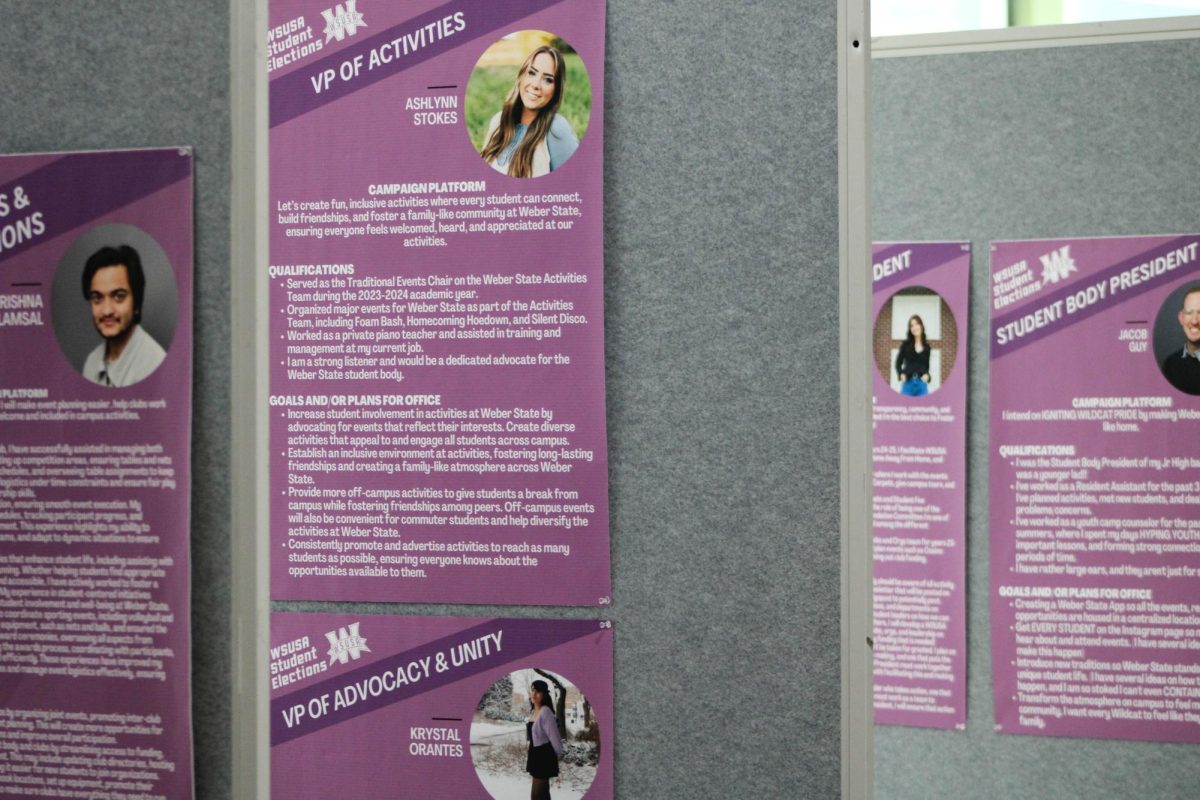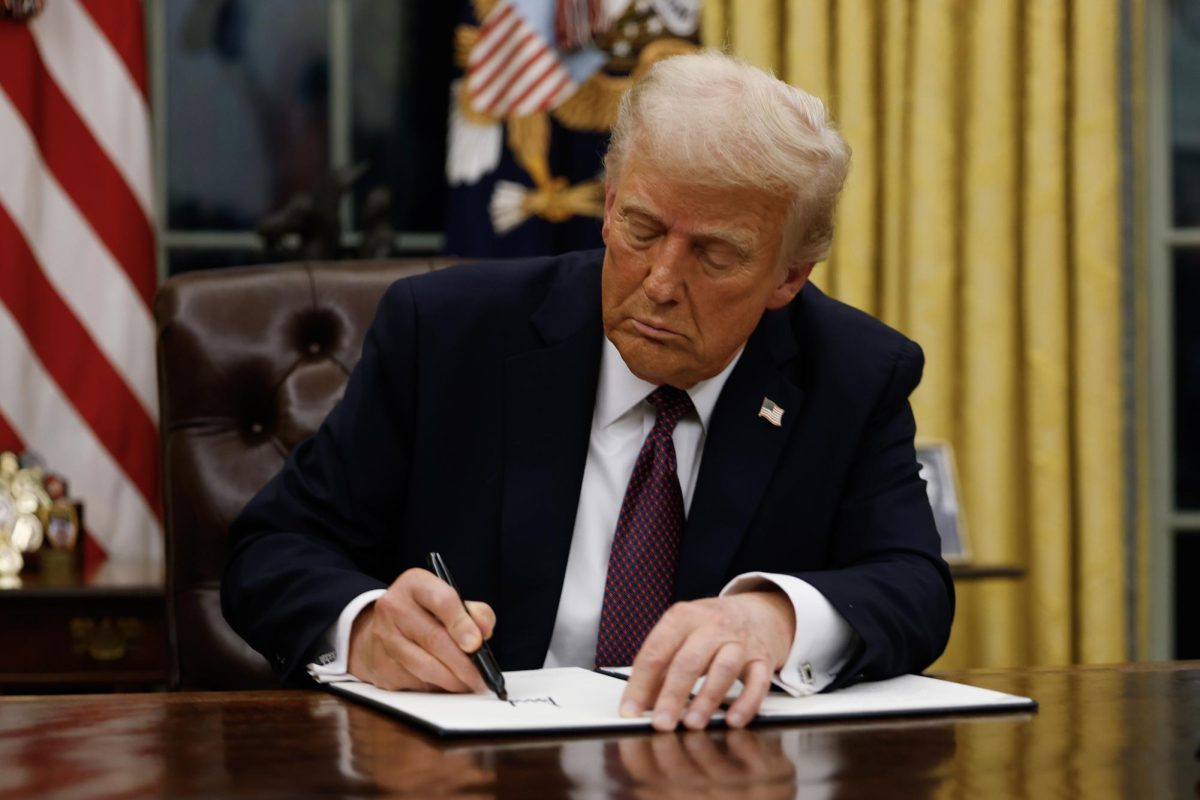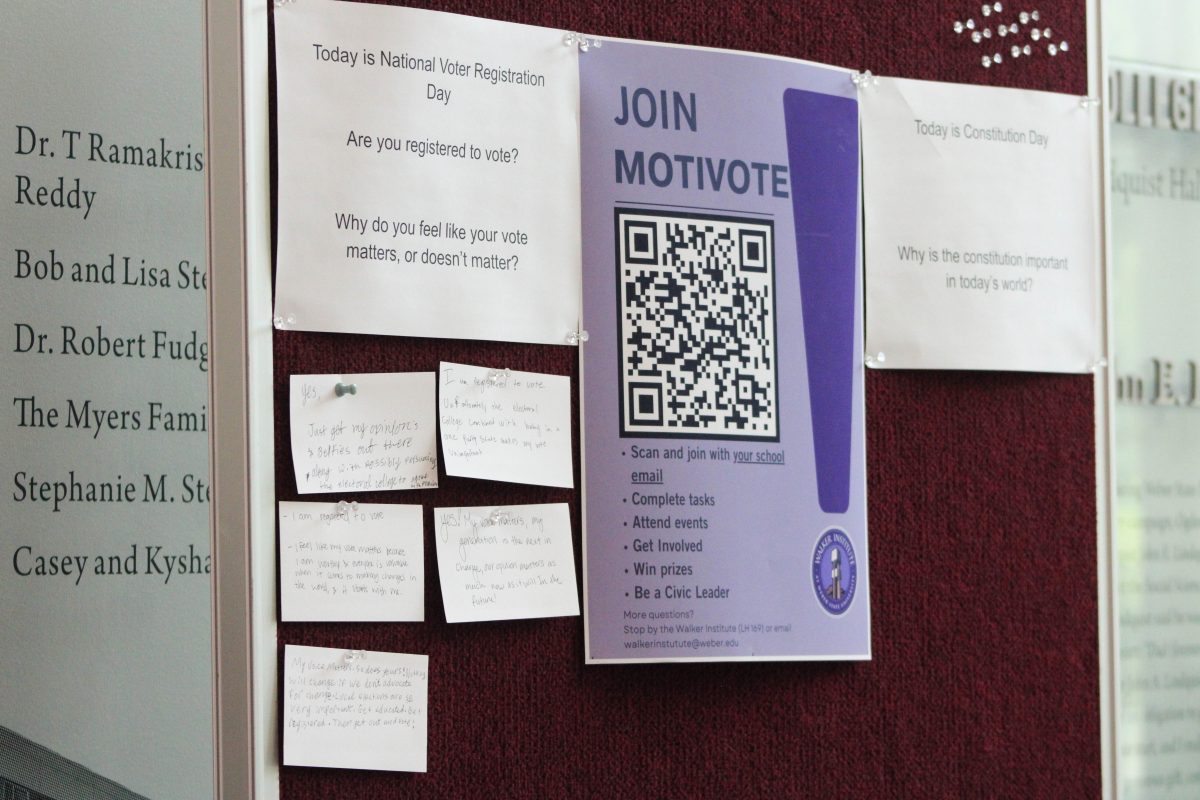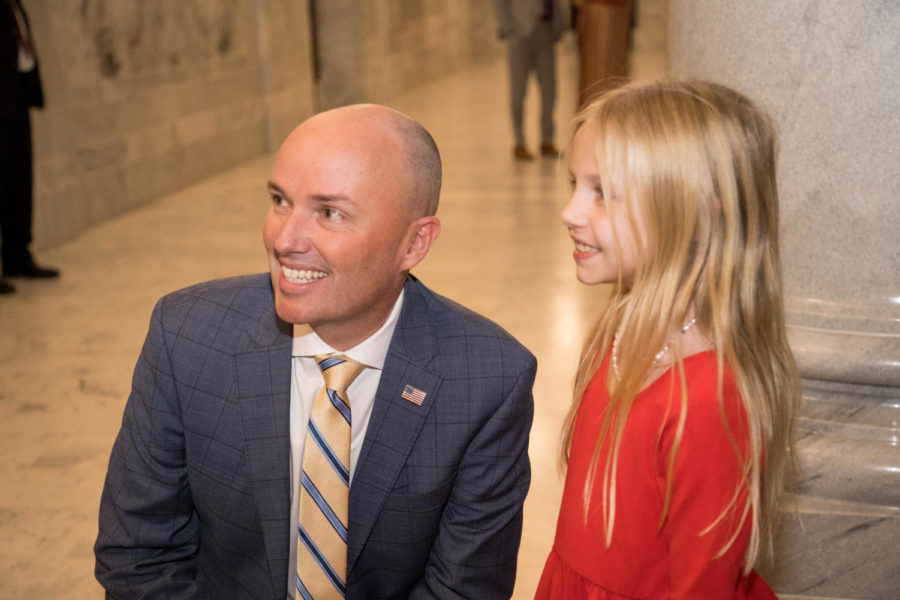
“Utah’s changing, and that’s what my candidacy represents,” U.S. Senate candidate Jenny Wilson said on Oct. 3 in a sit-down interview with The Signpost.
Wilson is the Democratic party nominee running against former Massachusetts Governor Mitt Romney. With the Nov. 6 general election on the horizon, she came to Weber State University for the first time in her campaign.
Wilson has spent her entire life in Utah politics, her father being former Salt Lake City Mayor Ted Wilson. When she announced her campaign, Senator Orrin Hatch had not yet decided to retire and was assumed to be the Republican nominee. The elder Wilson was Hatch’s opponent for the Senate in 1982.
“At one point I was like, ‘It’s Wilson/Hatch the sequel, and the sequel’s going to be better than the original,’” she said. “That was an opening line if my dad was in the room.”
She was first elected to the Salt Lake County Council in 2004 and has held the seat since. As a county councilor, she took on reforms ahead of the national curve, aimed at helping constituents in her district. She spearheaded an ethics reform, a gift ban and a decision to give health benefits to partners of LGBT county employees.
While Wilson was the first female city council woman and, if elected, will be the first female senator from Utah, she does not see herself as a figurehead for the Democratic party. She’s reaching out to all voters and has found that many of them appreciate her honesty and straightforwardness.
“We’re seeing some progress with Republican voters. Those who know me are saying, ‘Wow, I like her,’” Wilson said. “One of the advantages I’ve had over Romney, not only am I from Utah and have worked in this community a long time and have a long record of community service, I’m pretty direct. I’ll answer the question.”
Over the course of her campaign, Wilson has spoken across the state on issues she will push for if elected and on national debates like the Supreme Court nomination of Judge Brett Kavanaugh.
“I spoke out and called for an FBI investigation several days before Jeff Flake,” Wilson said. “In the end, I demanded it, and it was only after Flake’s position that Romney chose to speak on Kavanaugh.”
If elected, her goal is to start with governmental reform, but she also named student loans, housing costs, healthcare and wage inequality as issues that affect the next generation of Utahns.
Wilson said if she were to win, she would seek a position on the Senate’s Health and Human Services Committee as opposed to the seats Hatch and Lee currently hold on the Judiciary Committee.
She would use such a position to work toward her goal of healthcare reform for the people of Utah. Wilson opted to run for the Senate, as opposed to the House of Representatives, because of where she is in her life.
As a mother of two teenagers, she does not want to run for an office with a short term that leads to nearly-constant campaigning.
“My only interest is going to serve our state,” Wilson said. “Based on my strengths — which are working really well with people, working across party lines, having an impact — I think serving the state as a whole is really a better alignment for where I am at this point in my life and my ability to have an impact.”
The biggest obstacle Wilson has faced gaining ground is Romney’s financial advantage.
A longtime member of the national political stage, Romney was able to reach into an extensive network of donors from across the country for his campaign. Because Wilson lacks Romney’s network of donors, she has had to relied primarily on grass-roots funding for her campaign.
“I’m the one with the people-driven, $5 contributors, in-state,” Wilson said. “Most of my money is in-state. It’s low dollars, and we have thousands of donors who are going to go out there and bring their neighbors to the polls.”
According to the Federal Election Commission, Romney raised over $4 million between the beginning of 2018 and the end of June. In that same time, Wilson only raised $684,832.
Romney’s financial advantage came largely from funds left over from his 2012 presidential campaign, along with extra opportunities to raise money due to the nature of his campaign.
Wilson only had two chances to fundraise: the convention and the general election. Romney raised money during the convention, primary and the general election phases.
The final hurdle for Wilson at this point in her campaign is narrowing the gap. She is currently down 26 points to Romney, according to a Dan Jones & Associates poll conducted in early September.
This has narrowed from what was approximately a 50-point lead for Romney in late-2017. Wilson and her team are not concerned by the polls and is instead focusing on making herself and her ideas known to her campaign’s target voters.
“I have never been appealing to a hardened Republican voter, and I probably never will be, and I’m not ashamed of that,” Wilson said. “It’s just who I am.”
Utah’s religious demographics being what they are, the Church of Jesus Christ of Latter-Day Saints influences the race and the lives of both candidates. Wilson was raised in the church but is no longer an active member. Romney, however, is still active in the LDS Church.
Wilson took time to weigh in on the Utah first district congressional campaign, which includes Weber State. The district is currently led by Rep. Rob Bishop, who is facing two challengers in 2018: Democrat Lee Castillo and Eric Eliason of the Utah United Party.
“I find Lee really passionate and committed to the community, so we’ll just see what happens,” Wilson said.
Wilson and Romney will only go head-to-head on the debate stage once during the campaign. The debate will take place on Oct. 9 at 6 p.m. at the America First Events Center in Cedar City. The debate will be broadcast on a host of TV networks, as well as a radio broadcast by Utah Public Radio and a livestream by the Utah Debate Commission.
Update: The original post said she was elected to the Salt Lake City Council, she is on the Salt Lake County Council. This change has been reflected in the piece.



















